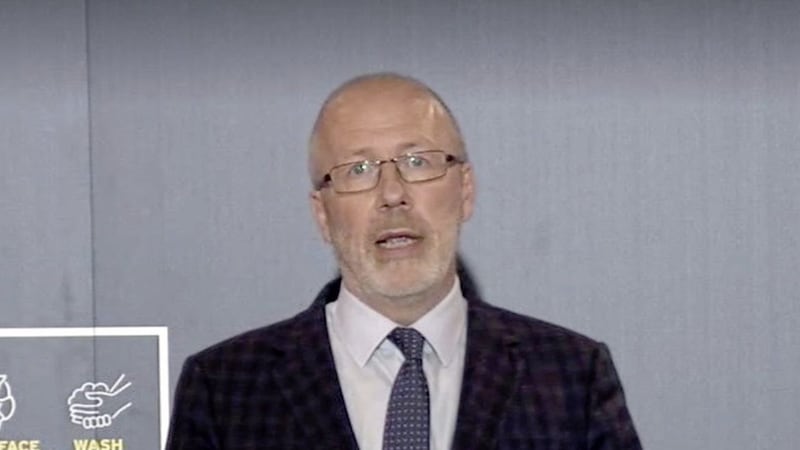Northern Ireland would have witnessed thousands of Covid-19 deaths if no action had been taken to suppress the virus, Stormont's chief scientific adviser has said.
Professor Ian Young's stark assessment came after executive ministers agreed to a sweeping new lockdown which will come into force immediately after Christmas and last six weeks.
The first week will see the toughest measure yet, with a form of curfew in operation from 8pm with shops closed and all indoor and outdoor gatherings prohibited until 6am.
Prof Young said the region's already over-capacity health service would have been completely swamped in January if no action was taken.
Queues of ambulances were witnessed at accident and emergency departments this week as patients were treated in car parks due to a lack of capacity.
"Of all of the things that we look at in terms of modelling, the number of deaths is the one that is most difficult to predict. It would, if no action were taken - which is inconceivable - have been very large, certainly within the thousands, if no action was taken," Prof Young said.
He told BBC Radio Ulster that the current number of Covid inpatients of between 400 and 500 would have soared to between 3,000 and 4,000 by the end of January if no action had been taken.
"In terms of the total number of general and acute beds, the type of beds that would have been required in hospital, the number of patients needing beds would have exceeded the total number of beds that were available."
Northern Ireland's reproduction number (R) - the rate at which the virus spreads - is currently between 1.1 and 1.2, but there are fears it could rise to between 1.4 and 1.8 over Christmas as shopping areas are busy and households are allowed to gather together.
Latest figures from the Northern Ireland Statistics and Research Agency put the overall death at 1,594 on December 11, with 86 deaths in the week up to December 11.
The figures are based on death certificates and provide a broader picture of the impact of Covid-19 than those reported daily by the Department of Health, which only include people who have tested positive for the virus.
The comparative departmental death toll on December 11 was 1,120.
Health minister Robin Swann said the lockdown would lay a "strong and deep foundation" for the fight against Covid-19 in 2021.
"It's something that was necessary, it is the toughest restrictions we've brought in yet, but, at this time of the year, just where coronavirus is, they were necessary to try to get back on top of it the way we did at the start of the year, so we can get the benefit that is actually coming out of the vaccine that we've started to deploy," he told BBC.
The Christmas bubble arrangements that allow three households to come together for five days over the festive period are not affected by the new lockdown measures.
Mr Swann defended the Executive's decision not to implement the lockdown before Christmas.
He said it would have seen people trying to squeeze activities such as shopping into a shorter period of time, which would have resulted in more interaction and a greater spread of the virus.








